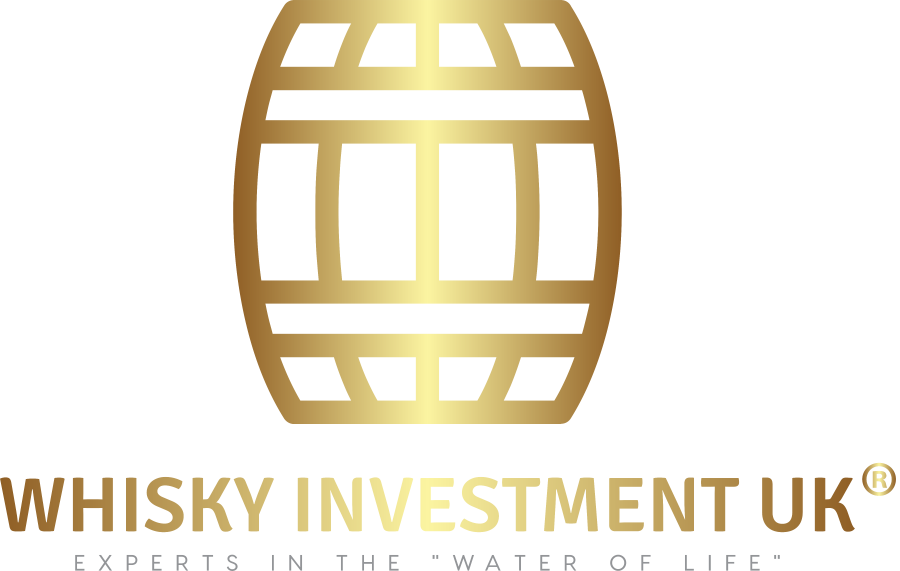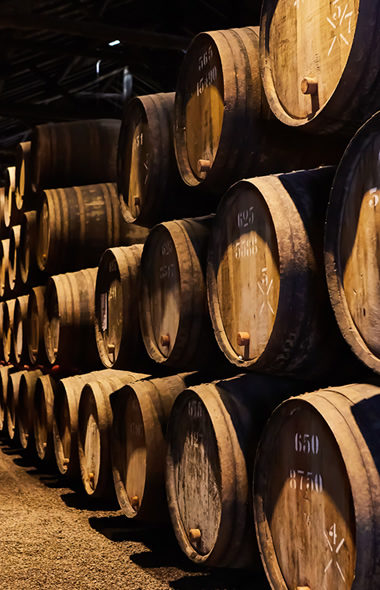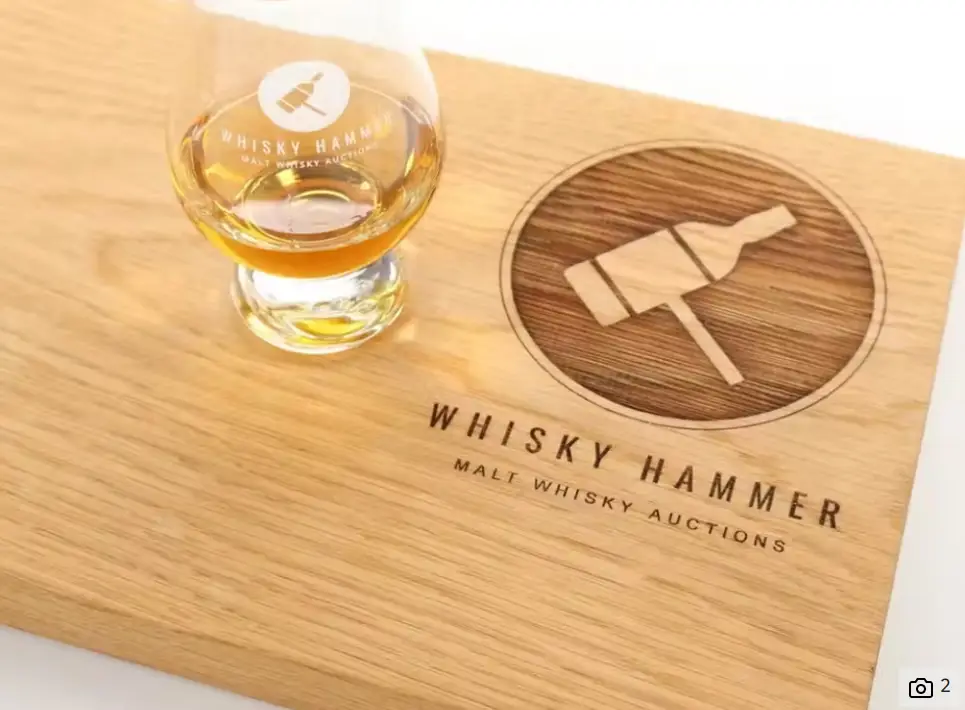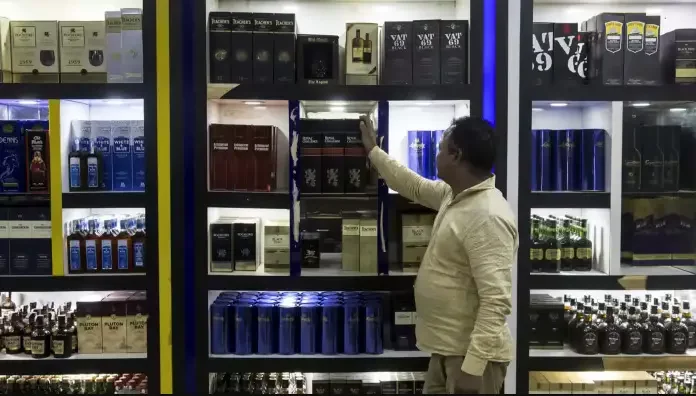How to Purchase a Whisky Cask Safely
INTRODUCTION
It is impossible to think of Scotland without thinking of Scotch Whisky. Its roots are firmly embedded in Scottish history and traditions but today it is drunk in the most stylish bars in the world’s biggest cities. For more than 500 years the Scots have successfully taken the natural ingredients which our country has been blessed with – barley, cool clear water, peat and pure clean air – to create the world’s leading international spirit drink.
Distilled in over 130 distilleries dotted around Scotland from the Northern Isles to the Borders it is exported to around 180 markets across the globe – an unrivalled reach for the product of any one country.
Scotch Whisky makes up more than a fifth of the UK’s food and drink exports and the value of annual exports has grown consistently for more than a decade. All of this creates considerable interest in investing in Scotch Whisky, driven by a desire to share in its success.

A personal investment opportunity?
Several companies promote individual ownership of a Scotch Whisky cask as worthwhile and potentially lucrative.
The Scotch Whisky Association is not able to offer advice on the purchase or sale of casks as an investment. Nevertheless, it believes that potential investors, to assess these opportunities, should understand something of the structure and operating methods of the industry.
Scotch Whisky and its market
World exports of Scotch Whisky are currently worth more than £4.9 billion. The majority is used to produce Blended Scotch Whiskies which can contain spirit from many different distilleries.
To meet this demand, Scotch Whisky blenders, who need whiskies aged for different lengths of time, contract with individual distilleries for the supply of the spirit that they require, laying down their stocks several years in advance. This enables Scotch Whisky distilleries to plan and maintain production at appropriate levels.
As a result, there is no regulated market for mature or maturing casks of Scotch Whisky, no officially published list of buying and selling prices for casks from different distilleries or at different ages and no established mechanism for selling. Scotch Whisky casks are not a regularly traded commodity on an open market. It is traded within the industry, sometimes through Scotch Whisky brokers, but primarily by contract between blenders and distillers who will sometimes exchange casks with no money changing hands.
It is possible, subject to availability and willingness, to purchase casks of Scotch Whisky, either newly distilled or maturing, from distillers for personal use. Casks are sometimes also purchased from time to time as a form of speculation with the intention of re-selling them at a profit.
However, it must be emphasised that only a tiny proportion of the total amount of Scotch Whisky produced in Scotland is bought and sold in this way.
Therefore, any investment in a cask made by an individual with a view to selling it on at a profit must be made based on their personal assessment of the risk and the value of the investment to them.
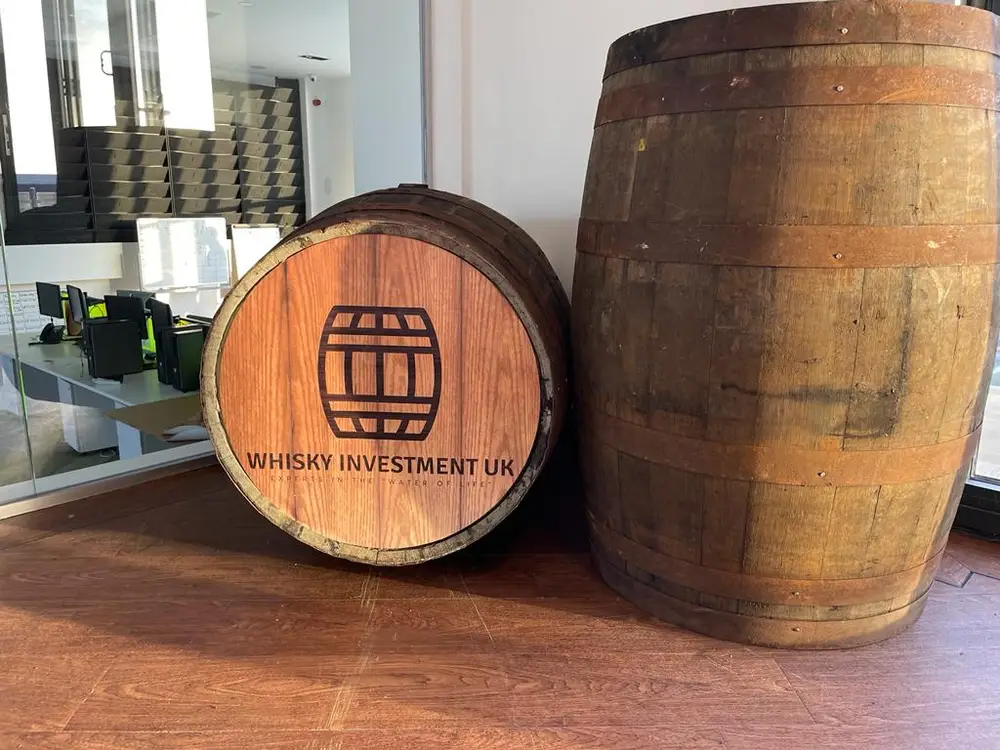
The promotion of investment opportunities
Opportunities to invest in casks have been promoted by several companies both in and outside the Scotch Whisky industry. Sometimes these have included indications of the return that the investors might hope to make.
Scotch Whisky casks however are no different from other commodities, whose values rise and fall according to supply and demand. The only certainty about owning a cask is that it will lose 2% of its contents through evaporation each year. This is something to keep an eye on during a long period of maturation because Scotch Whisky must be bottled at a minimum strength of 40% alcohol by volume.
Warehousing your cask
You are highly likely to be charged for storage and insurance for the time the cask is in the warehouse. There may also be charges if your cask requires to be moved or its contents measured to check, for example, its alcoholic strength. Movement of the cask under bond is strictly controlled and can only be carried out by authorised operators.
Bottling your cask
You will need to factor in the cost of bottling. (Single Malt Scotch Whisky must only be bottled in Scotland.) If a private owner decides to bottle their cask, excise duty will normally be due when the bottles are dispatched to the owner. The duty due will be based on the rate of duty applicable at that point and not when the cask was purchased. Thus, the purchase price of the cask is only the initial outlay.
In 2020 the rate of duty in the UK is £28.74 per litre of pure alcohol to which value added tax at 20% must be added. This will require a further outlay of several thousand pounds on the average cask.
Finally bear in mind that most bottlers are set up to bottle large volumes of spirits and it may take some effort to find one who is willing to bottle a single cask.
Other things to consider
If you decide to make a personal investment in a Scotch Whisky cask you should consider taking the following steps:
- Clearly identify the whisky on offer. Any company offering Scotch Whisky for sale should be able to confirm whether it is a Scotch Malt Whisky or Scotch Grain Whisky, the name of the distillery where it was produced, the year of distillation and a cask reference number.
- Check that the offer price is realistic by contacting the distillery or company whose whisky it is or speak to an established whisky broker or specialist auction house.
- Also check any claimed return with an established whisky broker, but even then, you should treat this with caution as the figure for which your cask might be sold depends on many variable factors.
- Most distillery names are trademarked and sometimes there will be a contractual limitation on the use of the name should you sell or bottle your cask. Before purchasing, you should check whether any conditions apply, particularly if you are not purchasing directly from the distillery.
- Consider whether there are any limitations on how you can dispose of your cask. Some sellers may include, for example, a contractual term that it may only be bottled for personal consumption at their premises.
Other things to consider (continued)
- By law, Scotch Whisky may only be matured in an Excise Warehouse in Scotland which has been verified by Her Majesty’s Revenue and Customs. Therefore, you should check the location of your cask before going ahead with the purchase. You can check to see if a facility has been verified on the HMRC website here: https://customs.hmrc.gov.uk/sdvlookup/index
- Insist upon receiving a receipt for the purchase price and a copy of the contract of sale which should:
- Provide a full description of the whisky purchased i.e. type, distillery, and year of distillation;
- Identify the cask purchased and the cask number, the type of cask (ex-Bourbon, ex Sherry etc.) and the volume of the contents;
- Identify the warehouse in which the casks are stored and the warehouse keeper; and
- Explain the costs connected to the storage of your cask.
- Your contract of sale represents your legal title and is proof of ownership of your cask.
- Check that your insurance is adequate for your needs. Does the insurance cover, for example, loss of spirit because of a leaking cask?
- If the cask is in a warehouse that belongs to someone other than the seller, you should ensure that the transfer of ownership is properly recorded and acknowledged by the warehouse keeper.
- Traditionally this was done by way of a delivery order, a document setting out the details of the cask to be transferred, signed by purchaser and seller and then delivered to the warehousekeeper. Nowadays an invoice or owner’s certificate may suffice. Before completing the purchase you should check with the warehouse keeper what documents they require and ensure that the seller can deliver them to you.
- As the owner of a cask stored in an excise warehouse, you should satisfy yourself that the warehouse and warehousekeeper are approved by HMRC. This also includes ensuring that the warehousekeeper is registered with HMRC under the Warehousekeepers and Owners of Warehoused Goods Regulations 1999 (‘WOWGR’). You might also be required to register with HMRC and obtain a WOWGR approval if you are deemed to be a ‘Revenue Trader’ . Further information can be found in HMRC’s Excise Notice 196 (in particular, section 5).
- Be aware that as well as reducing in volume, the contents of your cask will reduce in strength over time. It important that you monitor the strength of your cask, particularly if you are maturing it for a long time because if the strength falls below 40% abv, you will no longer be able to bottle it as Scotch Whisky.
CONCLUSION
When purchasing a cask, you should be aware of the special nature of the trade in Scotch Whisky and the costs involved.
Investors should recognise that there are risks involved, both as regards the potential value of their investment and the opportunities to sell it on.
Nevertheless, purchasing a cask for your own personal use can give you immense pleasure and enable you to create a unique Scotch Whisky to your own specifications.

